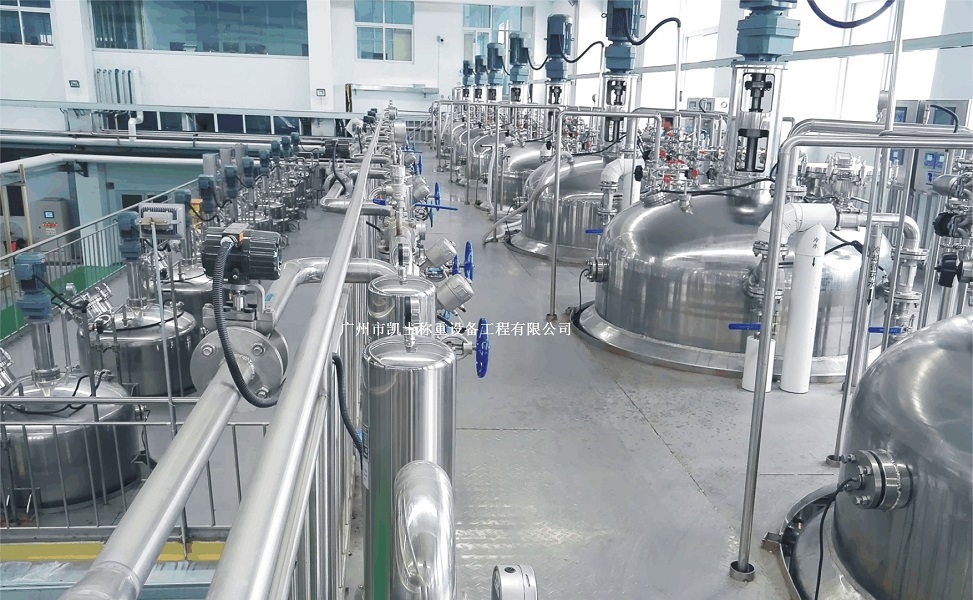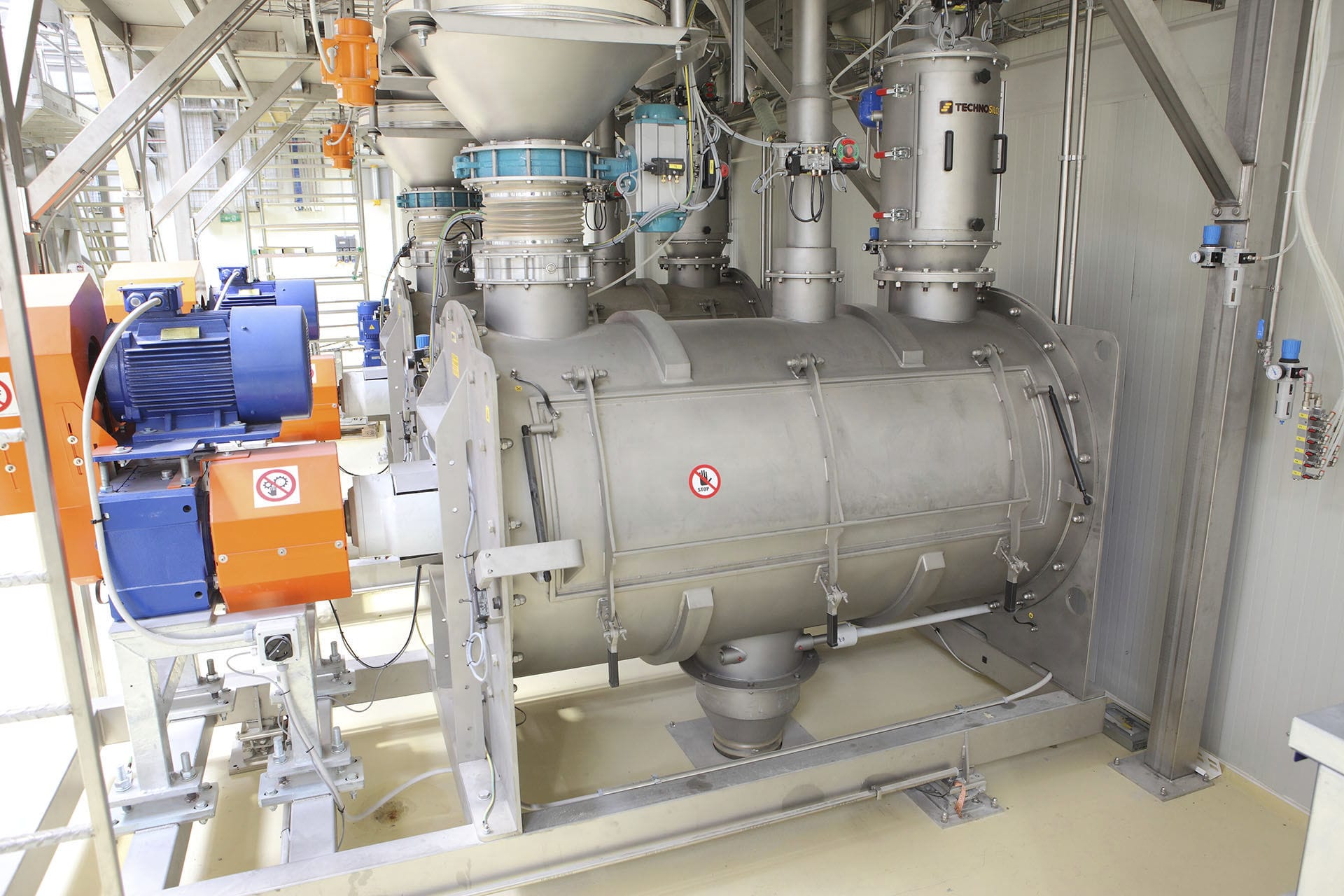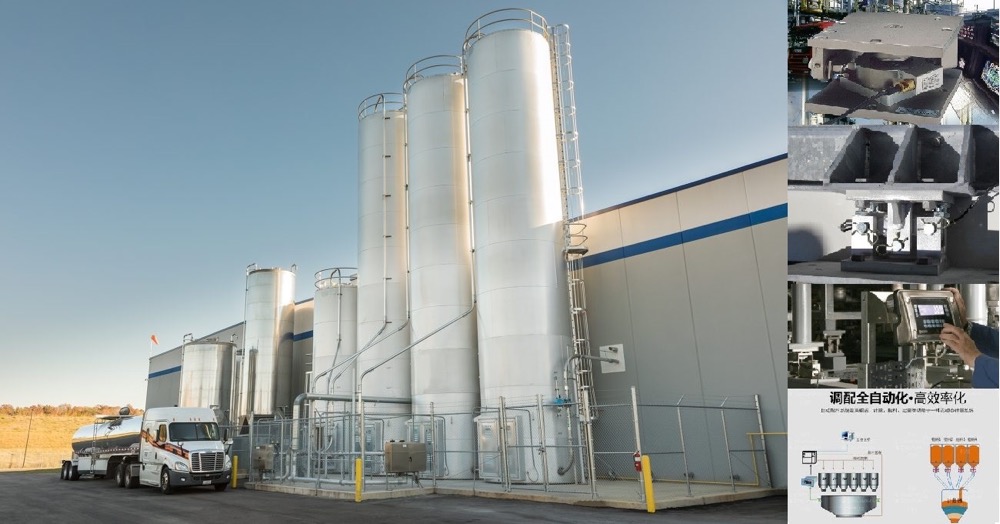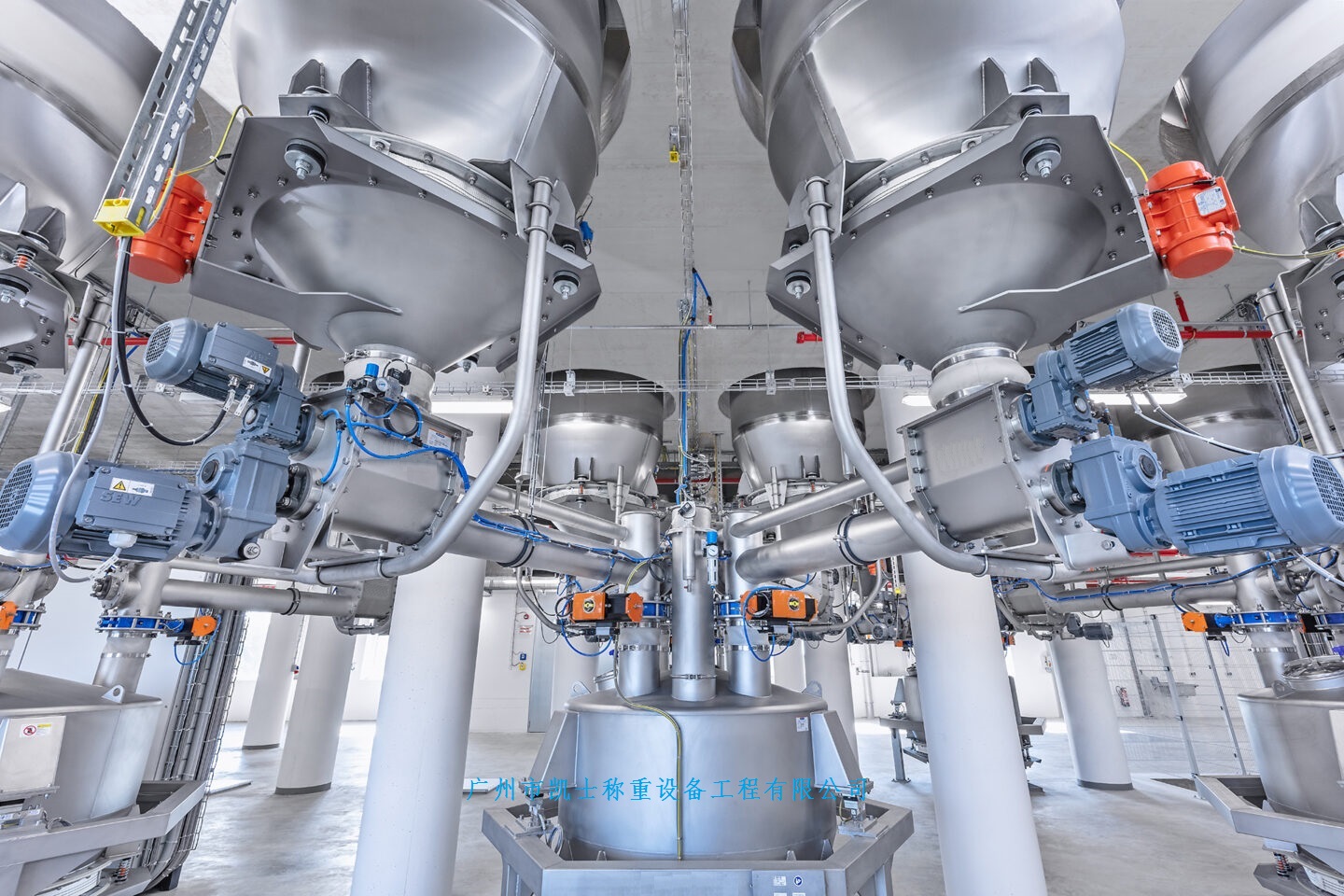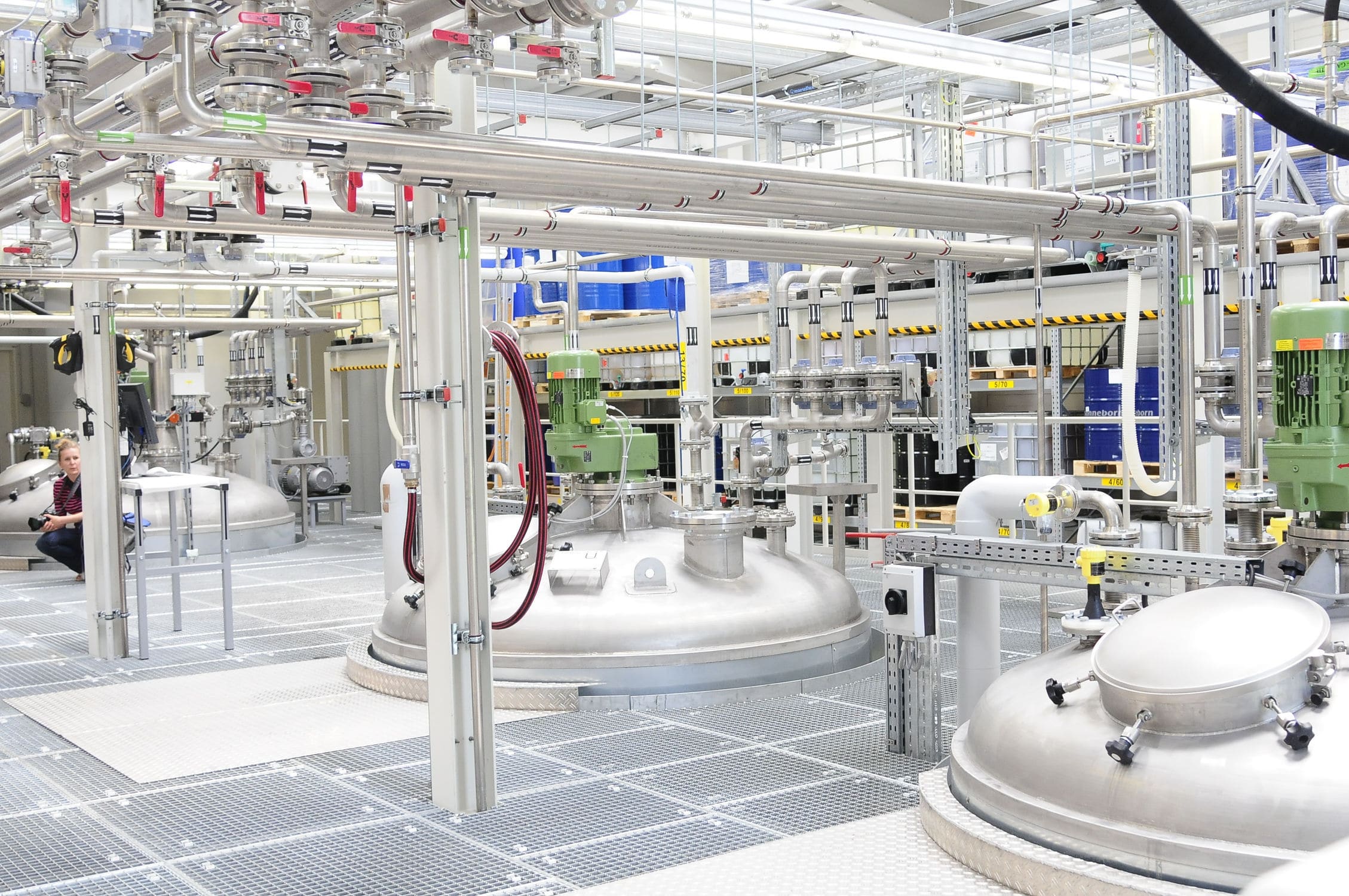

 2020.02.26
2020.02.26Summary:The batching system feeds the ingredients through the screw, uses the screw's material transport speed to control the mixing and discharging ratio, and automatically batches the ingredients according to the required ratio.Effectively manage the material mixing process.
In the past few years, the fierce competition in the market and the further increase of material prices, every manufacturer is improving their competitiveness, trying to improve product quality by all means, reduce production costs and minimize losses. Therefore, the automatic dosing device has become an indispensable equipment in the production process, a good mixing equipment can significantly increase the yield rate of the product, improve efficiency, and eliminate many unnecessary waste. However, at present, most of the production enterprises are still using the traditional manual weighing instrument weighing, supplemented by simple mechanical mixing for the formula mixing, the production of products out of the defective rate is very high, often appear color difference, resulting in unnecessary waste of raw materials and manpower. With the production process more and more perfect, the product standard requirements are more and more strict, the production enterprises on the importance of accurate dosage system and mixing equipment in the production of the application of more and more attention to the mixing equipment, accuracy, stability, cleanliness, operation, maintenance, cost-effective and so on have higher requirements.
In the field of plastics manufacturing, pharmaceuticals, chemicals, the current common dosage device is basically divided into two categories: namely, volumetric dosage system and gravity dosage method. Volumetric dosage is most commonly used to feed the dosage through the screw, basically applied to single or double species mixing.
Gravimetric dosage is most commonly calculated by weight gain and weight loss. Gravimetric dosing is mainly used in injection molding and extrusion (films, sheets, pipes, profiles); gravimetric dosing is mainly used in extrusion for continuous production. The final choice is based on the customer's production process requirements and product orientation. Generally speaking, the volumetric system is suitable for the application of recycled materials, color masterbatches or chemical additives, etc., which do not require very high mixing requirements, using the screw's rotational speed to control the mixing ratio of the material, which needs to be set according to the demanded ratio or manually call out the previously used and stored parameters to adjust and correct. Gravity type adopts high-precision weighing module for mixing and dosing, which is characterized by high dosing accuracy, suitable for adding additives, masterbatch and other substances, no calibration is needed during the operation, and the control system software will automatically dosage the materials according to the required ratio.
Has been committed to high precision, multi-material mixing and dosage of some technical innovations, its unique EG-E technology of high precision mixing technology is now in the world in the industry at the leading level, can be more accurate to help more users to solve the mixing and dosage of some of the practical problems that exist in the mixing and dosage. Can be used in injection molding, extrusion, blow molding, chemical, pharmaceutical and other industries on the process, from 5kg / h micro-dosing system to the mixing capacity of 2500kg / h, can be accurate and efficient weighing and mixing of 2-12 kinds of materials for the effective management of the material mixing process.
Multiple options of hopper scales
The modular design of the hopper scales with multiple specifications, easy to clean, interchangeable, extremely easy to dismantle and install, allows the user to choose the right hopper scale according to the type and amount of raw materials to be mixed.
Multi-station conveying
Multi-station conveying control function, through the control of a blower station and up to 13 suction stations, to realize the feeding action of up to 12 types of materials for blending, as well as the conveying of the mixed material to the main machine.
Modular loading and unloading
Can be installed directly on the mainframe or used as a centralized mixing station.
Visualization and monitoring
Transparent windows in multiple bins allow the user to observe and monitor the entire blending process through transparent windows installed in the hopper scales and mixing bins.
Fully dismantled for cleaning
The hopper scales are constructed in a modular fashion and can be quickly disassembled for cleaning when changing materials, ensuring a complete cleaning of the hopper scales. The weighing hopper scales in the mixing bin can also be disassembled, making it easy to clean the entire mixing bin when changing materials.
Intelligent management
The metering and feeding system adopts a colorful graphic full-touch industrial control screen, with a simple man-machine dialogue intelligent interface, autonomous optimization, automatic calibration, intelligent vibration suppression, and continuous optimization of the mixing process by comparing the set value with the actual value to ensure a more accurate mixing of raw materials.
Networked management
USB interface or Ethernet data connection, convenient online data update and correction, through the computer and network to realize remote operation and monitoring. Data storage card or Ethernet information transmission, the mixing ratio data can be saved and recorded or printed out, which is convenient for the effective management of production quality.
Multi-identity login
Multi-level management personnel authentication and password login to prevent malicious tampering of programs, data, formulas, authorization and management.
Humanized operation
The industrial-grade graphic control software of the weighing and feeding system can easily control each input and output station of the raw material conveying, and the centralized integrated control mode greatly improves the convenience of control and the flexibility of the whole set of control system.
More accurate feeding
Feeding control adopts the latest structure of vertical valve structure, avoiding the commonly used horizontal valve structure is prone to produce the phenomenon of material jamming, feeding faster and more accurate.
Long life structure
Horizontal mixer structure, multi-directional mixing blade mixing more evenly; motor and mixer using soft connection between the motor and the mixer, can effectively avoid the long-term use of the metal gravity changes caused by multiple points and the motor drive shaft is not the same center of the damage.
With industry-leading EM-E1 series batching software for precise control, the latest generation of high-precision load cell with the new industry's most advanced ratio calculation program, completely independent of the formula, raw materials or application environment, every time the power on and change the material automatically carry out the self-tuning calibration, so that the mixing of each batch of the proportion of the error is accurately controlled to within ± 0.1%, the formation of the optimal mixing of raw materials and the self-tuning of the mixing process, to ensure higher accuracy. Optimized process control ensures the output of higher precision mixing materials; one-key switching mode, multi-level personnel authentication password way, the front-line operators only need to fill in the proportioning information of the production products, click on the switching button, the automatic dosage system will automatically complete all the proportioning actions, the operation is very simple and easy to understand.
The automatic batching machine has the characteristics of precision, stability, easy to clean, etc., to further optimize and enhance the existing market of various screw-type masterbatch proportioning machine, valve-type and weighing mixing and blending machine commonly exists in the continuous supply of inaccurate batching, small amount of material, backward function, poor compatibility, poor controllability, data online can not be managed, etc., to meet the needs of the process of injection molding, extrusion, blow molding and other different industries. It can meet the needs of different industries, such as injection molding, extrusion, blow molding, etc., for mixing with higher precision ratio, fully automated and high-precision dosing and mixing, unmanned workshop management mode, which can save human resources and improve production quality and output. Especially, the one-stop multi-point monitoring can help users to understand and store the working condition of the whole system at any time.


















